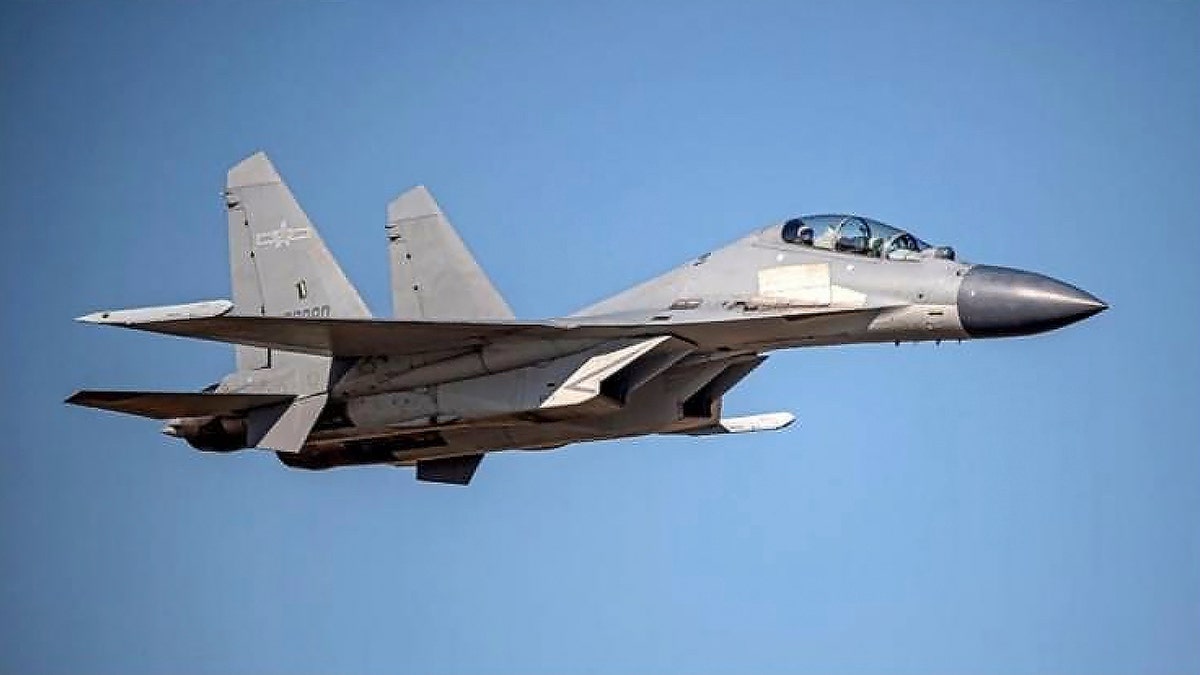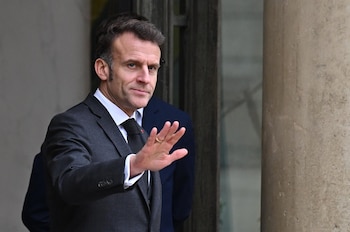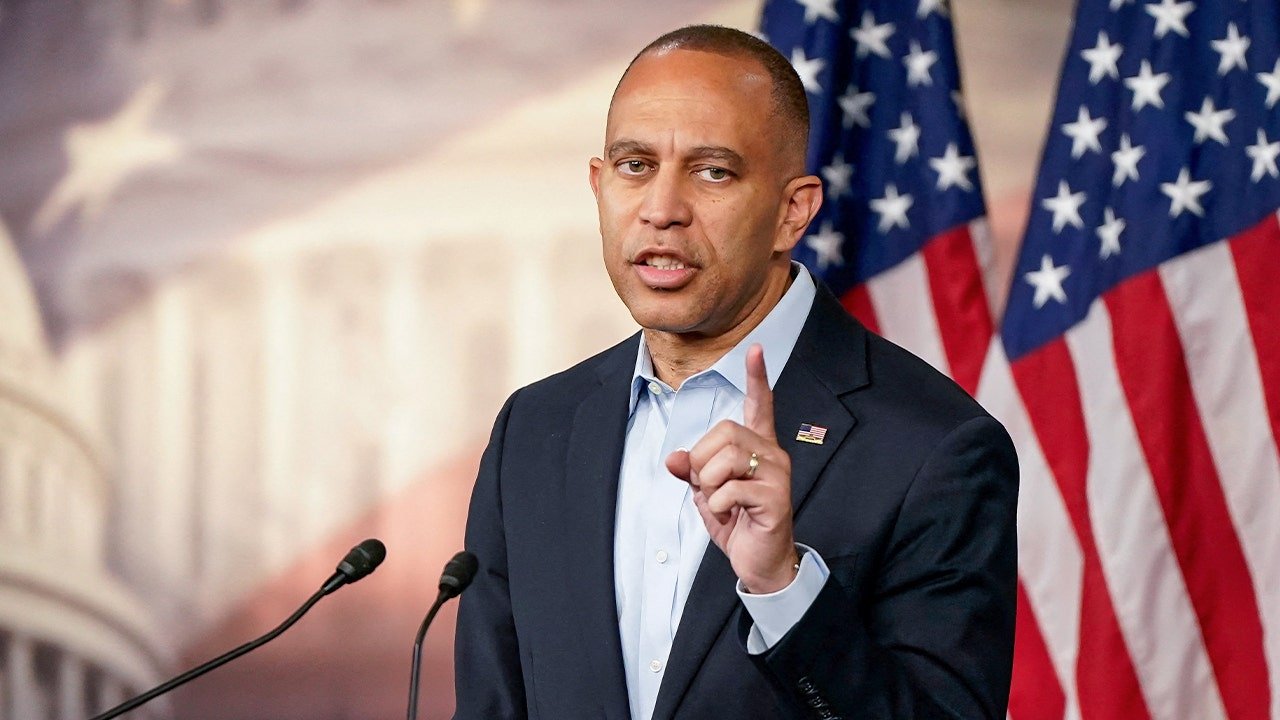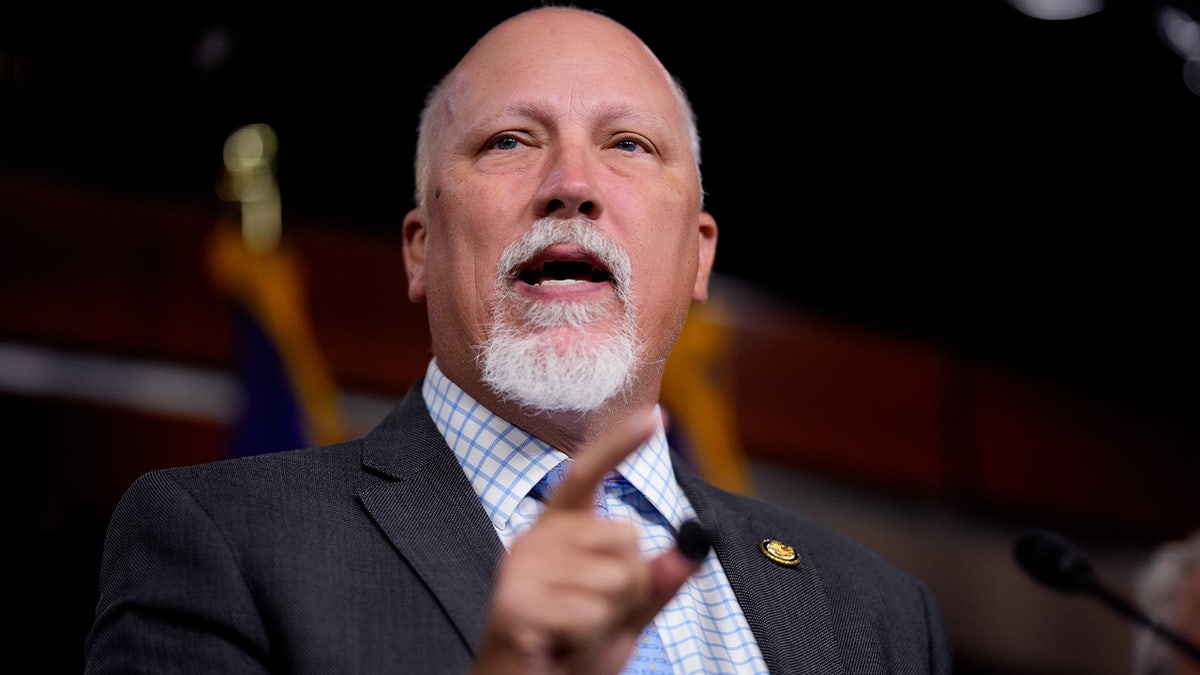INTERNACIONAL
Taiwan ramps up coast guard and military readiness in face of Beijing’s ‘gray zone’ warfare

Taiwan’s Coast Guard conducts military drill
Taiwanese President William Lai oversaw the ‘Ocean Day’ drill in the coastal city of Kaohsiung amid rising threats from China. (Video Eryk Michael Smith for Fox News Digital.)
NEWYou can now listen to Fox News articles!
KAOHSIUNG, Taiwan – Taiwan’s coast guard and affiliated military units put on a show of strength during an «Ocean Day» drill last week amid growing threats from China.
Held in southern Taiwan’s largest city, Kaohsiung, the exercise was overseen by Taiwan President William Lai, and while framed as demonstrations of search and rescue and anti-terrorism abilities, there was no escaping the larger reason why Taiwan is strengthening frontline defenses and operational readiness.
Alongside the navy, Taiwan’s coast guard is undergoing modernization. On display during the Ocean Day exercise was one of Taiwan’s new Anping-class corvettes, stealth-capable vessels with surface-to-land missile systems, and, naturally, advanced rescue capabilities.
TAIWAN’S PRESIDENT TARGETS CHINA INFLUENCE, KICKS OUT PRO-BEIJING AGITATORS AMID RISING TENSIONS
Taiwanese President Lai Ching-te, center, walks before an offshore anti-terrorism drill at the Kaohsiung harbor in Kaohsiung, southern Taiwan on Sunday, June 8, 2025. (AP Photo/Chiang Ying-ying)
This all comes as Taiwan’s top weapons developer recently announced they had developed various new sea drones – including so-called «kamikaze» or suicide drones. An anonymous official claimed Taiwan’s military will test the sea drones in waters off Southern Taiwan this August.
Defense Minister Wellington Koo confirmed late last month that the navy of independently-ruled Taiwan will soon add unmanned surface vehicles, while the army is set to inaugurate its first drone units this year. Reports say Taiwan produced around 10,000 drones last year, and this year plans to buy 3,000+ more made by local companies for military use.
In remarks following the Ocean Day exercise, Lai urged Taiwan’s lawmakers to back his administration’s latest defense spending proposals and told the group of select guests that included the highest-ranking American official based in Southern Taiwan, Neil Gibson, that the matter was about more than just ships and hardware.
«It’s about national resilience.»

Members of Taiwan’s coast guard participate in an offshore anti-terrorism drill at the Kaohsiung harbor in Kaohsiung, southern Taiwan, on Sunday, June 8, 2025. (AP Photo/Chiang Ying-ying)
Taiwanese government officials frequently denounce what they term as escalating «gray zone» warfare from Beijing, actions such as harassing fishing vessels, illegal incursions, and, on at least one occasion, boarding a Taiwan-flagged civilian ferry. Taiwan sees these actions as Chinese attempts to create a «new normal» of uncontested control of the roughly 100-mile-wide Taiwan Strait that separates the two sides.
Taiwan’s coast guard is dwarfed by the growing Chinese coast guard, which is already the largest in the world in terms of the number and size of vessels. Last year, according to statistics provided to Fox News Digital by Taiwan’s Ocean Affairs Council, Taiwan’s coast guard drove away 1,196 vessels from Taiwanese waters – 1,135 of which were from China.
CHINA RAMPS UP MILITARY ‘REHEARSALS’ AROUND TAIWAN, OUTSTRIPS US IN AIR, MARITIME, SPACE
Lai said there is an urgent need for upgraded infrared surveillance to enable round-the-clock maritime monitoring, as well as other tech that could combat Chinese tactics that include illegal sand dredging, cyber disruptions and even sabotage of undersea cables, actions deliberately chosen to stay below the threshold of «acts of war.»
Ross Darrell Feingold, a lawyer and political risk analyst based in Taipei, told Fox News Digital that Lai’s calls for bipartisanship arise from the president’s party not currently holding a majority in Taiwan’s Parliament, which will make the passage of his proposed $13.6 billion USD «special budget» much more difficult.

A Chinese PLA J-16 fighter jet flies to an undisclosed location. China’s military sent 71 planes, including J16 fighter jets, and seven ships toward Taiwan in a 24-hour display of force directed at the island, Taiwan’s Defense Ministry said Monday, Dec. 26, 2022. (Taiwan Ministry of Defense via AP)
«This proposed spending would go to the coast guard, the military, and be used to assist domestic industries affected by higher U.S. tariffs,» said Feingold, who noted that the Trump administration should have no issues with selling weapons to Taiwan.
Since he took office on May 20, 2024, Lai has increased defense spending within the limits of what he can do while not holding a majority in Parliament.
CLICK HERE TO GET THE FOX NEWS APP
Beijing’s communist government stubbornly claims Taiwan as its territory despite never having governed it for a single day, and in recent years, removed language calling for a «peaceful settlement» in official statements. One widely quoted assertion claims Chinese President Xi Jinping has ordered the Chinese military to be ready to invade Taiwan by 2027, now less than two years away.
INTERNACIONAL
Líderes de la Unión Europea se reúnen en Bélgica para debatir cómo reforzar su economía ante la presión de EEUU, Rusia y China

Los líderes de la Unión Europea se reunirán este jueves en el castillo de Alden Biesen, en Bélgica, con el objetivo de debatir cómo reforzar el peso económico del bloque frente a la competencia de China y Estados Unidos y superar las divisiones internas que frenan su capacidad de acción.
La cita convocará a los dirigentes de los 27 países miembros en un contexto marcado por la turbulencia geopolítica, la intensificación de la competencia global y una economía que avanza por detrás de otras grandes potencias. El encuentro tomará como referencia un informe clave publicado hace 18 meses que plantea reformas para transformar el funcionamiento económico del bloque.
La presidenta de la Comisión Europea, Ursula von der Leyen, subrayó la urgencia del momento en declaraciones ante líderes industriales el miércoles. “La urgencia no podría ser mayor. Estamos luchando por un lugar en la nueva economía global”, afirmó.
El presidente francés, Emmanuel Macron, insistió en la necesidad de una respuesta rápida y de gran alcance por parte del bloque. Advirtió que la UE debe actuar a “una nueva escala y a una nueva velocidad” para frenar la “fragmentación, el debilitamiento y probablemente la humillación de Europa”. El mandatario también renovó su llamado a impulsar deuda conjunta europea, una propuesta que divide a varias capitales del bloque, y la definió como la “única forma” de competir con China y Estados Unidos.

Durante las conversaciones previstas, Von der Leyen promoverá una serie de iniciativas, entre ellas un impulso a la estrategia de “comprar europeo”, la simplificación de normas comunitarias y la firma de nuevos acuerdos comerciales para diversificar los socios del bloque. La propuesta de dar prioridad a empresas europeas en compras públicas se perfila como uno de los puntos de mayor tensión entre los países miembros.
Estados como Suecia y Países Bajos, defensores del libre comercio, expresan cautela ante la posibilidad de adoptar medidas que se acerquen al proteccionismo. El canciller alemán, Friedrich Merz, sostuvo que ese tipo de política debería aplicarse solo como “último recurso”.
La Comisión Europea también promueve la creación de un nuevo sistema legal para empresas que opere al margen de los marcos nacionales, el llamado “régimen 28”, con el objetivo de facilitar la actividad corporativa en los 27 países. La iniciativa apunta a reducir trabas administrativas y permitir que las compañías operen con mayor facilidad a escala continental.
Otro de los ejes centrales del debate será la profundización del mercado único. Von der Leyen y varios dirigentes consideran que una integración más estrecha constituye la principal respuesta frente a la competencia global, tal como plantea el informe elaborado por el ex presidente del Banco Central Europeo, Mario Draghi.

Tras la intervención prevista de Draghi, los líderes también escucharán al ex primer ministro italiano Enrico Letta, quien defendió una mayor integración económica, incluida una unión de ahorro e inversión que facilite el acceso al capital para las empresas. A diferencia de sus rivales estadounidenses, muchas compañías europeas enfrentan dificultades para financiar su expansión pese a que el continente alberga algunas de las mayores economías del mundo, como Alemania y Francia.
Diplomáticos indicaron que el encuentro estará dominado por dos cuestiones principales: los precios de la energía y la estrategia de preferencia por productos europeos. Von der Leyen respaldó la idea de que los compradores públicos prioricen a empresas del bloque y anunció que el Ejecutivo comunitario presentará una ley sobre preferencia europea este mes.
“Introduciremos requisitos específicos de contenido de la UE para sectores estratégicos”, expresó. Luego añadió: “Dirijamos más dinero europeo hacia nuestras industrias europeas”.
(Con información de AFP)
International,Relations,Africa,Diplomacy / Foreign Policy
INTERNACIONAL
Only one House Dem voted in favor of voter ID, proof of citizenship in US elections

NEWYou can now listen to Fox News articles!
The House of Representatives passed a massive election integrity overhaul bill on Wednesday despite opposition from the vast majority of Democrats.
The House passed Rep. Chip Roy’s SAVE America Act, legislation that’s aimed at keeping non-citizens from voting in U.S. federal elections. All but one House Democrat — Rep. Henry Cuellar, D-Texas — voted against the bill. It passed 218 to 213.
It is an updated version of the Safeguarding American Voter Eligibility (SAVE) Act, also led by Roy, R-Texas, which passed the House in April 2025 but was never taken up in the Senate.
Whereas the SAVE Act would create a new federal proof of citizenship mandate in the voter registration process and impose requirements for states to keep their rolls clear of ineligible voters, the updated bill would also require photo ID to vote in any federal elections.
MURKOWSKI BREAKS WITH GOP ON VOTER ID, SAYS PUSH ‘IS NOT HOW WE BUILD TRUST’
House Minority Leader Hakeem Jeffries holds a press conference on the fourteenth day of the U.S. government shutdown on Capitol Hill in Washington, D.C., Oct. 14, 2025. (Elizabeth Frantz/Reuters)
It would also require information-sharing between state election officials and federal authorities in verifying citizenship on current voter rolls and enable the Department of Homeland Security (DHS) to pursue immigration cases if non-citizens were found to be listed as eligible to vote.
Democrats have attacked the bill as tantamount to voter suppression, while Republicans argue that it’s necessary after the influx of millions of illegal immigrants who came to the U.S. during the four years of the Biden administration.
«If we want to rebuild confidence again in American elections, we need to pass the SAVE Act,» Rep. Mike Haridopolos, R-Fla., told Fox News Digital. «What better way to eliminate that distrust than to make sure that whoever votes in an American citizen who is truly eligible to vote?»

Rep. Chip Roy, R-Texas, speaks during a news conference on Capitol Hill on Oct. 20, 2025, in Washington, D.C. (Andrew Harnik/Getty Images)
House Minority Whip Katherine Clark, D-Mass., accused Republicans of trying to make it harder for women to vote. She argued that the legislation would make it more difficult for married women to cast ballots if their surname is different from their maiden name on their birth certificate.
«Republicans aren’t worried about non-citizens voting. They’re afraid of actual American citizens voting. Why? Because they’re losing among women,» Clark said during debate on the House floor. «This is a minefield of red tape that you have put in front of women and American citizens and their right to vote.»
REPUBLICANS, TRUMP RUN INTO SENATE ROADBLOCK ON VOTER ID BILL
But House GOP Policy Committee Chairman Kevin Hern, R-Okla., emphasized that it was about keeping illegal immigrants from voting in U.S. elections.

A voter fraud sign is seen at Lupica Towers in Cleveland, Ohio. (J.D. Pooley/Getty Images)
CLICK HERE TO DOWNLOAD THE FOX NEWS APP
«This really is about feeding the narrative that Democrats want illegally from all over the world to come here to support them,» Hern said of Democrats’ opposition.
Republican Study Committee Chairman August Pfluger, R-Texas, told Fox News Digital, «The American people did not give Republicans a mandate to make excuses. They gave us one to deliver wins, and the SAVE America Act is exactly that. Every single Democrat who voted no today proved they would rather let illegal aliens tip the scales in our national elections than protect your vote.»
If implemented, the bill could see new requirements imposed on voters in this year’s November midterm elections.
But it would have to pass the Senate, where current rules dictate that at least several Democrats are needed to meet the 60-vote threshold to overcome a filibuster.
elections,house of representatives politics,republicans
INTERNACIONAL
Cientos de tractores bloquearon Madrid en rechazo al acuerdo comercial de la Unión Europea con el Mercosur

Madrid paralizada
Qué implica el acuerdo
Los argumentos de Pedro Sánchez
“Más ganadores que perdedores”

 POLITICA2 días ago
POLITICA2 días agoAcuartelamiento policial en Santa Fe: reclamo salarial y temor a un conflicto nacional de seguridad

 ECONOMIA2 días ago
ECONOMIA2 días agoCuánto le cuesta a la clase media llenar el changuito y cómo varían los precios de los alimentos entre provincias

 POLITICA2 días ago
POLITICA2 días agoLa advertencia de ATE a los gobernadores que apoyan la reforma laboral: “Firmarán su sentencia de muerte”















